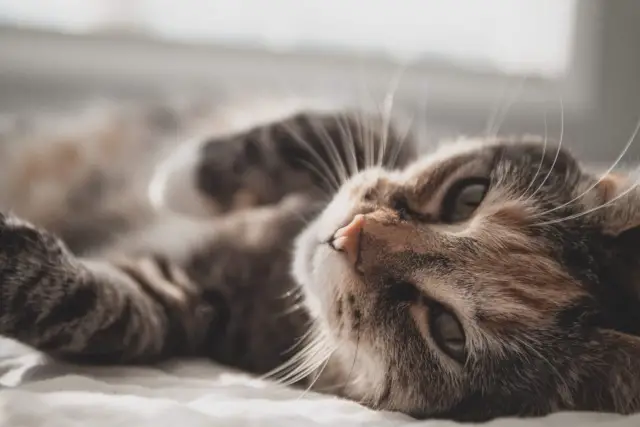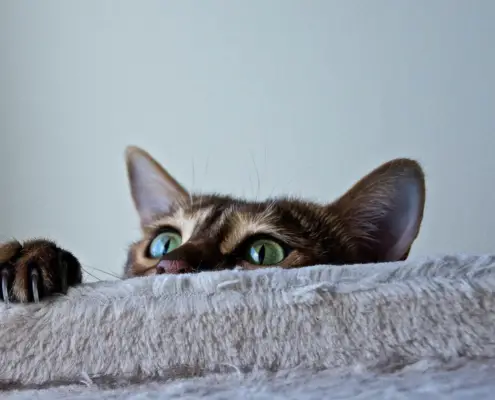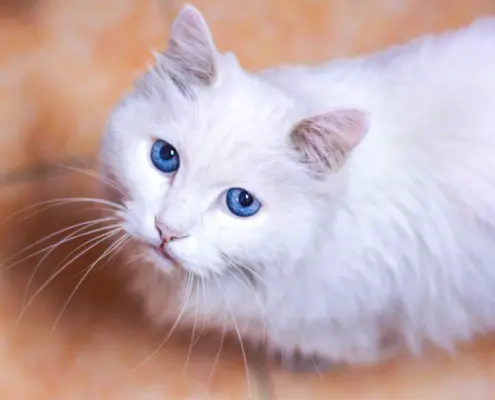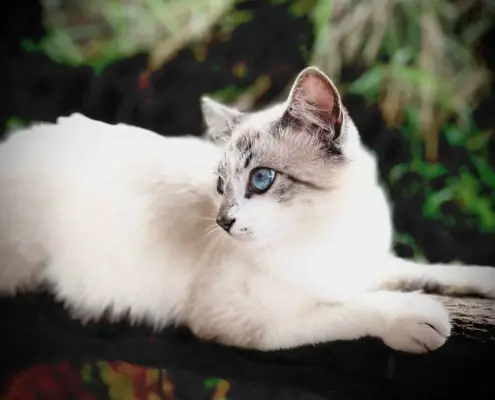
Time perception is a fascinating area of study that has captivated researchers for centuries. From humans to animals, the perception of time plays a crucial role in our daily lives. While humans have a well-developed sense of time, the question arises: are cats aware of time? This article delves into the intriguing world of feline time perception, exploring research, observations, experiments, and potential implications.
The concept of time perception in animals
Time perception refers to the ability to perceive and understand the passage of time. While humans have a sophisticated sense of time, animals possess varying degrees of time perception. Some animals rely on external cues, such as the rising and setting of the sun, while others have internal biological clocks, known as circadian rhythms, that regulate their behavior. Understanding how animals perceive time provides insight into their cognitive abilities and adaptation to their environment.
Research on cats’ awareness of time
Research on cats’ time perception is relatively limited compared to other animals, such as rats or pigeons. However, several studies have shed light on their ability to perceive time. One study published in the journal Animal Cognition observed cats’ behavior during feeding times. The researchers found that the cats displayed anticipatory behavior, indicating their awareness of when they were about to be fed.
Observations and behaviors that suggest cats have a sense of time
Cat owners often notice certain behaviors that suggest their feline companions have a sense of time. For example, many cats seem to have an innate ability to wake up their owners at the same time every morning, usually around breakfast time. This consistent behavior implies that cats have some level of time perception, allowing them to anticipate events and adjust their behavior accordingly.
Additionally, cats often display a strong sense of routine. They may start meowing or pacing around the house when it’s close to their regular mealtime or playtime. This behavior suggests that cats have an internal sense of time and are capable of associating specific activities with certain times of the day.
Experiments and studies on cats’ time perception
Researchers have conducted several experiments to investigate cats’ time perception abilities. In one study, cats were trained to associate specific sounds with the delivery of food. The researchers then introduced a delay between the sound and the actual delivery of food. The cats showed a decrease in anticipation as the delay increased, indicating that they were aware of the passage of time.
Another study explored cats’ ability to discriminate between different time intervals. The researchers trained the cats to respond to a specific stimulus after a certain amount of time had passed. The cats successfully discriminated between short and long intervals, demonstrating their ability to perceive time to some extent.
The role of circadian rhythms in cats’ time perception
Circadian rhythms, internal biological clocks that regulate daily activities, play a significant role in cats’ time perception. Like most animals, cats have an internal sense of time that helps them adapt to their environment. Their circadian rhythms control various physiological processes, such as sleep-wake cycles and hormone production. These internal clocks likely contribute to their ability to perceive time.
Factors that may influence cats’ perception of time
Several factors may influence cats’ perception of time. One such factor is their level of arousal or engagement. When cats are highly engaged in an activity, time may seem to pass quickly for them. On the other hand, when they are bored or waiting for something, time may appear to drag on. Environmental factors, such as lighting and temperature, may also play a role in their perception of time.
Comparisons with other animals’ time perception abilities
Comparing cats’ time perception abilities with those of other animals provides valuable insights into the broader understanding of time perception in the animal kingdom. For instance, rats have been extensively studied for their ability to perceive time intervals and adjust their behavior accordingly. Pigeons, too, have shown remarkable time perception abilities, particularly in tasks involving temporal discrimination. By studying cats alongside these animals, researchers can gain a more comprehensive understanding of time perception across different species.
Implications and potential applications of understanding cats’ time perception
Understanding cats’ time perception can have various implications and potential applications. For pet owners, it can help in creating a more enriching environment that meets their cats’ needs. By considering their time perception abilities, owners can ensure regular feeding and playtimes, which contribute to their overall well-being. Additionally, this knowledge can be beneficial in veterinary settings, where understanding cats’ sense of time can aid in reducing stress during examinations and procedures.
Furthermore, studying cats’ time perception can provide valuable insights into the broader field of animal cognition. By unraveling the mysteries of how animals perceive time, researchers can gain a deeper understanding of their cognitive abilities and how they adapt to their environment.
Conclusion
While cats’ time perception is still a topic of ongoing research, evidence suggests that they possess some level of awareness of time. Observations of their behaviors, along with experiments and studies, indicate that cats can anticipate events and adjust their behavior accordingly. Understanding cats’ time perception not only enhances our knowledge of their cognitive abilities but also has practical applications in providing better care for our feline companions. As research in this field continues to expand, we may uncover even more fascinating aspects of feline time perception.
If you enjoyed my article, I would appreciate you sharing it with your network.

Sima Ndlebe
Sima writes for CatBuzz. He is interested in Cats, Health and Fitness, and Entrepreneurship.
Published: 30 October 2023




